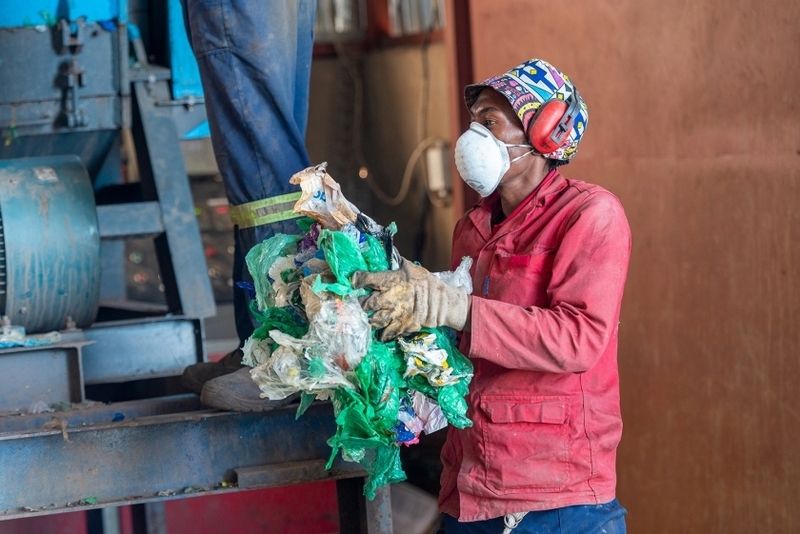By
Marwa Nassar
-
-
A South African youth decided to fight unemployment by launching a small enterprise for plastic waste recycling, thus contributing to the international march towards attaining Sustainable Development Goals (SDGs) which call for downing unemployment and ditching plastic waste which causes environmental pollution and kills millions of sea animals
Tshepo Mazubuko, a young person from a Johannesburg suburb, started his business from scratch to build a recycling company that is today employing 17 people and engaging over 800 waste collectors, most of them women from poor communities.
Developing waste collection mechanism
The segregation of waste is time-consuming and costly. After participating in various training sessions that were supported by Switch Africa Green, Mazubuko decided to organize his business to make it more focused.
He learned that he had to outsource a number of activities that his company couldn’t handle in an efficient way. He decided to outsource waste collection which ensures the waste collectors get more involved in the business. It also makes them happy.
Waste collectors don’t only collect and sell waste but also segregate it to make it easy for processing. By outsourcing these activities, KI Recycling managed to cut on costs and created other parallel businesses for other people from poor communities.
As the business grew, Mazubuko had to think out of the box and encourage householders to segregate the waste they generate. The company created incentives, as Mazubuko realized that people engage in waste segregation if they see the value in doing it.
KI Recycling partnered with others, such as supermarkets, to create a simple system to buy waste from consumers, an initiative dubbed Packa-Ching.
Packa-Ching is a mobile buy-back center that travels into communities to purchase recyclable materials. Households are paid for materials onto a cell phone (e-wallet) which they can use to purchase airtime, withdraw cash, transfer money or pay at participating shops. Each type of waste is evaluated and bought at a different price.
Switch Africa Green supports KI Recycling
Mazubuko’s KI Recycling Company received support from
Switch Africa Green, a United Nations Environment Program (UNEP)-European Union project, as well as the Government of South Africa.
“Switch Africa Green helped me to learn how to improve my business and grow. It supported me with networking and connected me to other businesses,” explains Mazubuko. “Switch Africa Green widened my horizon and opened my eyes to the real potential in this sector.”
Waste is processed and turned into plastic pellets that the company exports to other neighboring countries such as Mozambique and Botswana. The plastic pellets are used to produce water pipes and other products such as plastic chairs.
Switch Africa Green helps medium, small and micro enterprises in South Africa and other countries in the region to achieve sustainable development by assisting the transition towards an inclusive green economy and sustainable consumption patterns and practices.
“The transition to a green economy requires actions and significant technological, behavioral and systemic change in all levels of the society including citizens, public and private sectors,” says Patrick Mwesigye, UNEP Africa Office Regional Coordinator on Resource Efficiency.
“We have seen more radical innovations come from the micro, small and medium enterprises. These enterprises play a key role in the transition to green economies and sustainable development. As UNEP, we support these enterprises in creating business models that are not only economically profitable but also boost environmental and social inclusiveness.”




اترك تعليقا